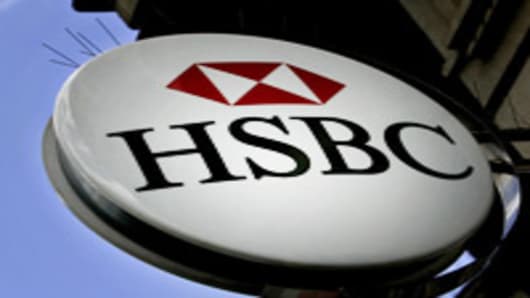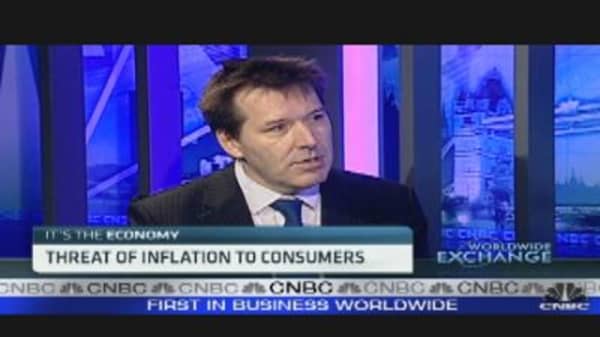HSBC is cutting growth targets and raising inflation forecasts following dramatic rises in commodity prices that threaten the global recovery.
“Never before have we seen such large increases in the cost of raw materials so soon after the end of a deep and protracted recession in the Western world,” according to HSBC chief economist Stephen King.
“It’s a marriage made in economic hell,” King wrote in a bearish note to investors.
“Business and consumer confidence may currently be very high but they may not stay at these levels for very long. Already, the Michigan consumer confidence survey has shown the third biggest decline in expectations since the series first began in 1978,” he added.
King said animal spirits can be fickle and pointed to the experience of 2008 when elevated levels of business confidence in the first half of the year where followed by an outright collapse later that year.
“Admittedly, we’re not expecting another financial crisis on a par with Lehman any time soon but we are worried about both sovereign debt in the euro zone and a complete absence of deficit-reducing intent in the US,” he said.
“But history suggests that large cost increases can easily puncture business and consumer confidence. In economics, pride all too often comes before a fall,” King added.
Soaring demand from the emerging world, tensions in the Middle East and the unforeseen impact of the carry trade as Western monetary stimulus put investors in risk-on mode are behind the rise in oil prices, even as many emerging nations have begun “quantitative tightening,” according to King's note.
“As food and energy prices rise, so real incomes fall and spending power declines. Thus, while we have raised our US inflation forecasts, for example, we have simultaneously cut our growth forecasts, notwithstanding high readings from business surveys,” he wrote.
His pessimistic scenario of $150 a barrel oil could mean very bad things for the US and global economy, King added.
“Higher gasoline prices erode real incomes, lower real incomes eat away at big-ticket purchases, falling domestic demand triggers a collapse in imports and, before you know it, there’s a collapse in world trade,” he wrote.
“The key thing to remember is that a big increase in oil prices leads to a major redistribution of global income away from high-spending economies in the developed world to high savings countries among the world’s major oil producers,” King said.
The developed world has little firepower available to cope with the commodity price threat.
“The new reality is simple: Western central banks are no longer so easily in control of their nations’ economic destinies," he wrote.
"Until and unless the emerging nations tighten policy themselves and, in the process, help bring commodity prices down, the developed world will constantly find itself having to make room for the new economic superpowers,” he explained.
Given his pessimistic view, King is telling investors to buy the euro on higher ECB rates, avoid bonds and buy low-beta equities with strong dividends.





